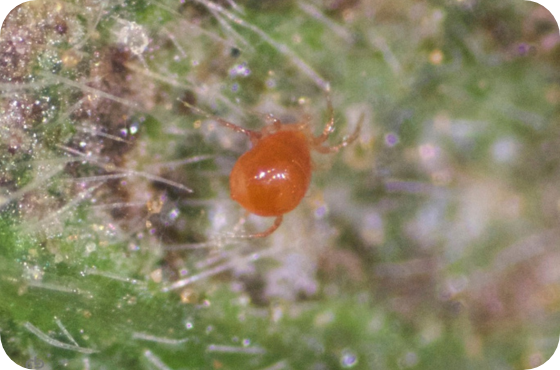Quality Products
Fast Delivery
Premium Service
Written by Kevin van Kester | Last update: 11. February 2022
Phytoseiulus persimilis, a highly voracious predatory mite, is globally recognised for its powerful biological control of spider mites across vegetable, fruit, and flower crops. Learn more about this powerful spider mite control in Canada and the applications in this article.

Phytoseiulus persimilis is a predatory mite distinguished by its orange-to-red, teardrop-shaped body. Larvae and nymphs appear light pink. Under optimal conditions, an adult can lay up to 6 eggs daily, which hatch within a few days. The newly emerged nymphs immediately begin preying on spider mites, rapidly building a large population. Typically, each mite consumes between 5 to 20 spider mites daily.
Phytoseiulus targets only spider mites. This mite punctures its prey and feeds on its fluids, effectively reducing spider mite populations. Adults focus on feeding on mature spider mites, while the younger stages of Phytoseiulus prefer to consume spider mite eggs, larvae, and nymphs.
Phytoseiulus persimilis thrives under two key conditions: temperatures over 18°C and humidity levels exceeding 50%, with 70% being ideal. This predatory mite performs best between March and November. During winter, its development slows down, making it less effective at controlling spider mites.
For best results, use Phytoseiulus persimilis immediately upon receipt. If storage is necessary, keep the mites cool, ideally between 8°C and 10°C, for up to 24 hours. To prevent temperature shock, allow the mites to gradually warm up to room temperature before application. Always store the product horizontally and in a dark place.
To use Phytoseiulus, simply distribute the mites evenly across your crop. The amount needed varies with the level of pest infestation. Before application, ensure the product is well-mixed by gently shaking the container to achieve an even spread of mites for effective pest control.